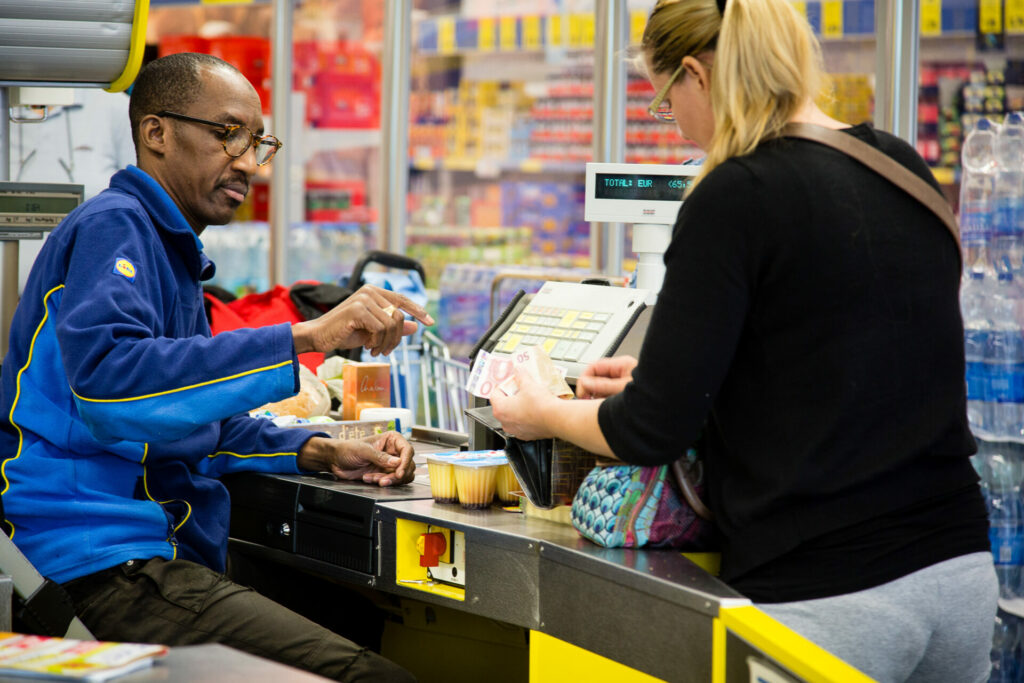Inflation in Belgium held steady at 5.4% in July, as food price inflation has calmed considerably from 2023 peaks which fuelled a cost of living crisis.
The cost of everyday products and services increased by 5.4% last month, the same as in June, according to the latest European harmonised consumer price index (HICP).
Statbel, the Belgian statistics office, noted that the biggest drivers of inflation in July were natural gas, tobacco, heating oil and electricity.
Meanwhile, the cost of bread and grains, meat, dairy products, furniture, motor vehicles and motor fuels and lubricants had the largest negative impact on inflation.
Food price inflation continues to fall
While the average cost of a trip to the supermarket is still rising, food inflation has fallen significantly compared to last year's peak. Inflation for food and non-alcoholic beverages was 1.1% in July, compared to 1.5% in June, and has been gradually falling from a high of 20.3% in March 2023.
Looking at specific products, annual inflation of oil prices was at 5.5% in July, compared to 31.3% in March 2023. The price of dairy products fell by 1.4% in July, versus peak inflation of 31% in March last year.
Inflation for fish was 1.3% last month, while in March 2023 it was 17.2%. For bread and grains, inflation was 0.8% in July, compared to 22.0% in March last year. Over the same period, meat inflation has fallen from 16.8% to 2%.
Energy costs artificially driving inflation
The contribution of energy costs to Belgium's headline inflation figure was negative for more than a year (between January 2023 and February 2024), but has been rising in recent months, contributing 2.2% in July.
Statbel pointed out that this is not due to an increase in energy costs, but rather a side effect of the wrapping up of emergency financial supports provided by the State during the energy crisis after Russia's invasion of Ukraine.
Inflation for energy products stood at 23.8% in July, compared to 25.6% in June and 20.4% in May. While inflation for energy products fell in July compared to the previous month, electricity is still 9% more expensive than a year ago.
Meanwhile, natural gas is 114.3% more expensive than last year in May, and the price of heating oil has increased by 28.1% compared to last year.
Comparison to EU neighbours
Eurostat will publish the full July HICP for all EU countries on 20 August. Until then, comparisons can be made using initial HICP flash estimates for July.
In Belgium, this inflation amounted to 5.5% in July, a slight increase compared to the 5.4% in June. The Netherlands recorded inflation of 3.5% in July, up from 3.4% in June.
Meanwhile in France, inflation rose from 2.5% in June to 2.6% in July. In Germany, the flash estimate put inflation at 2.6%, up from 2.5% in June.

